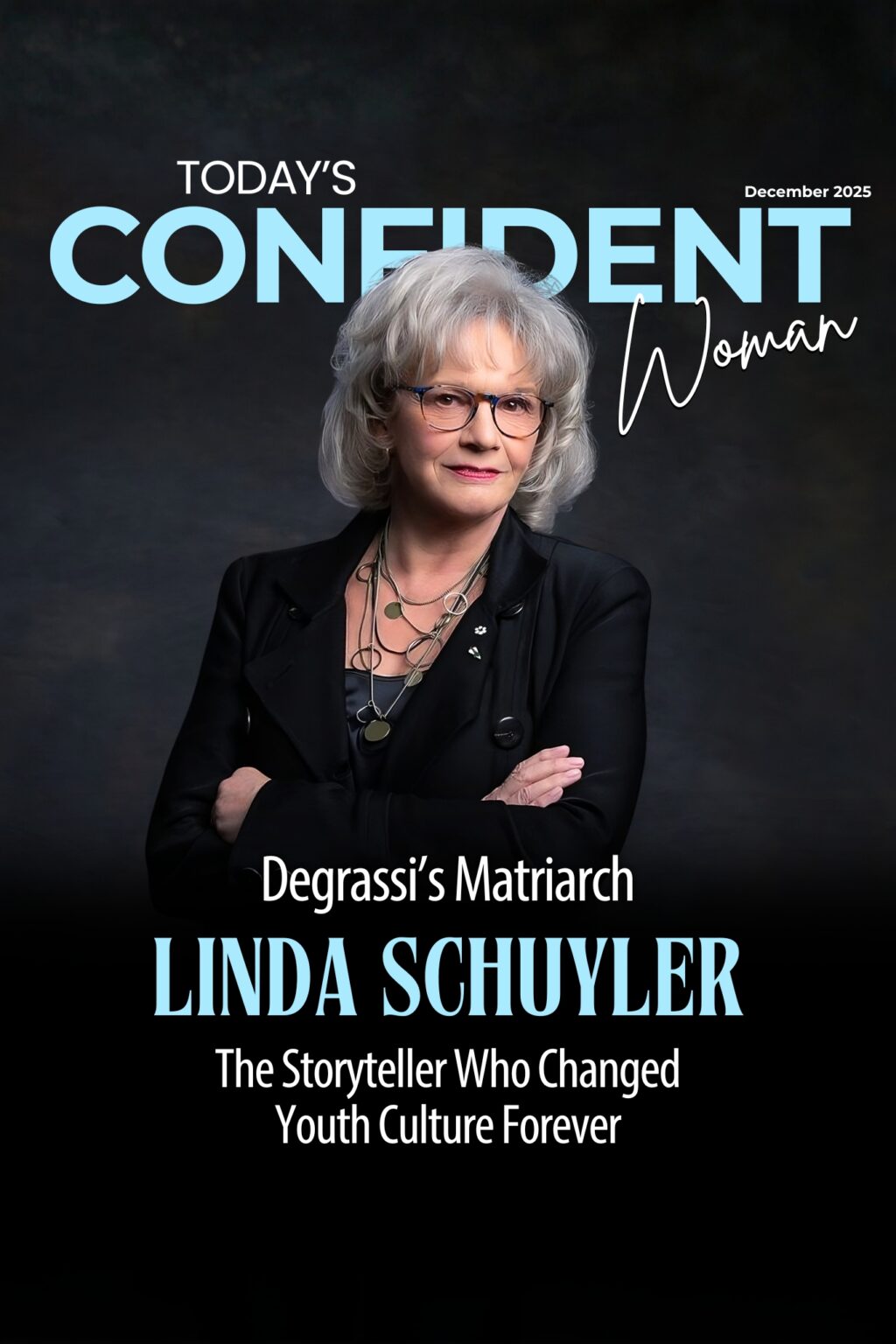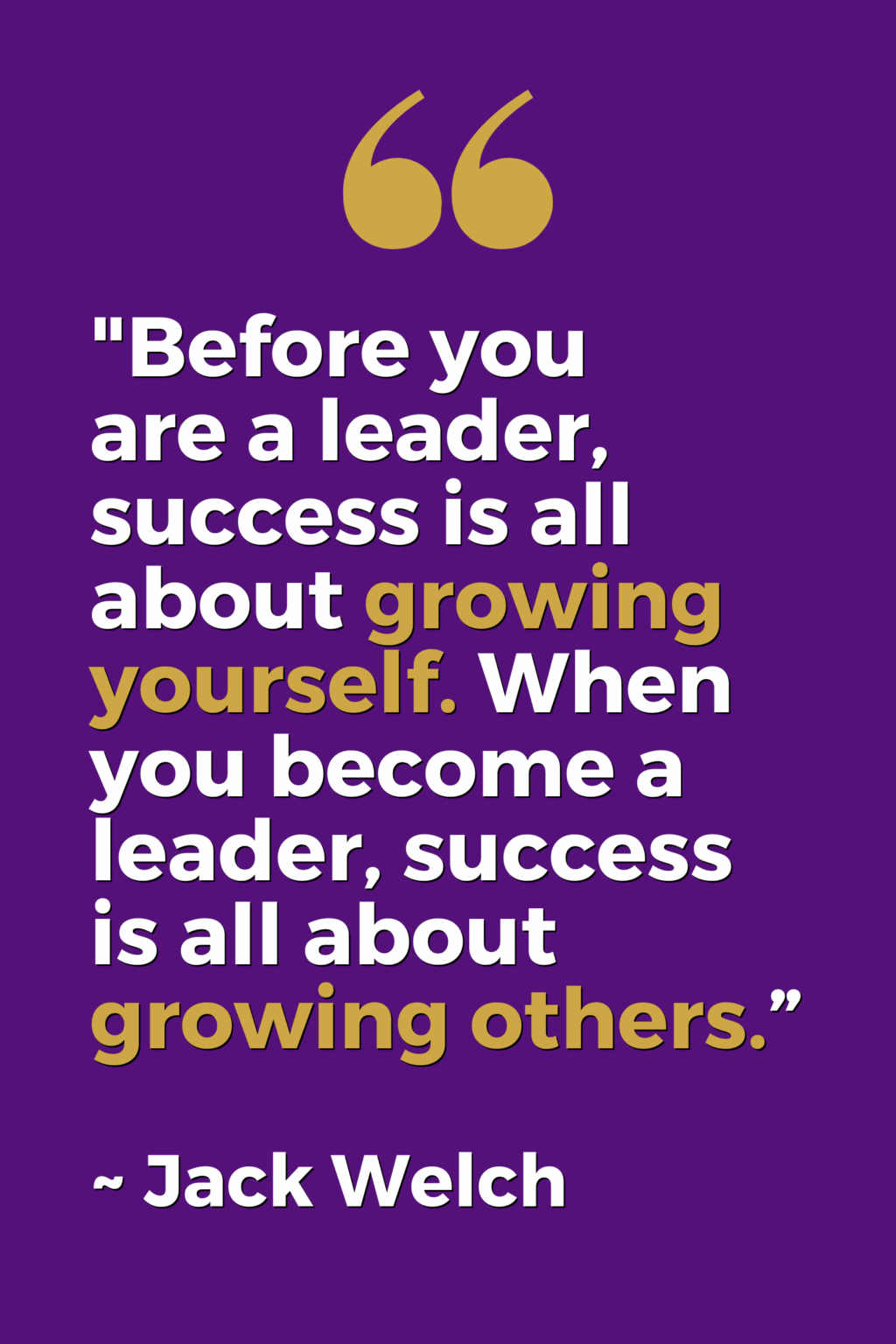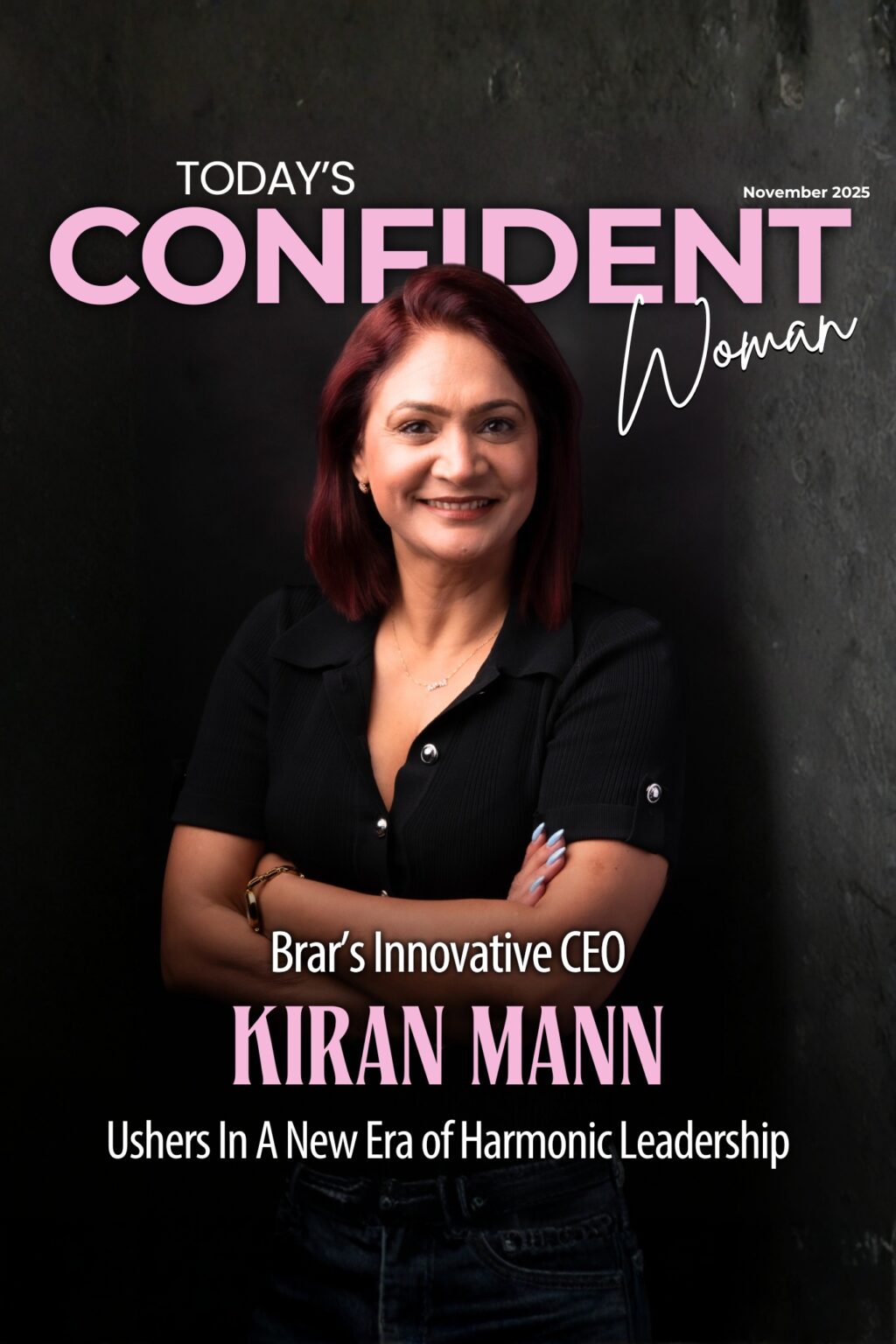
When micro-learning meets coaching, growth stops being another task—it becomes a way of living.
Farah Khan
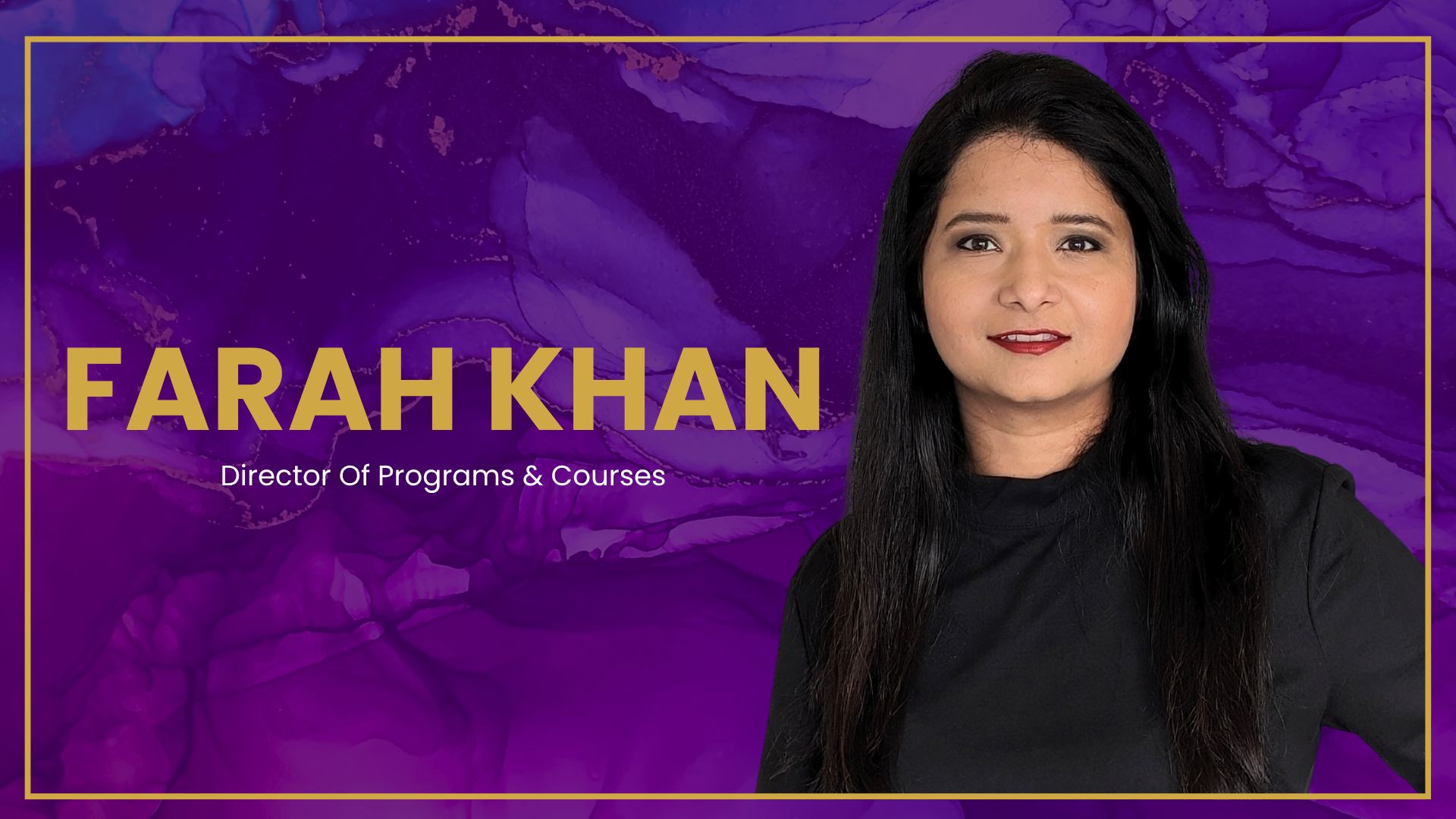
We live in an era of information overload. Between online courses, podcasts, and endless webinars, it seems we’re always “learning.” Yet many of us — especially women balancing multiple roles — still feel stuck, burnt out, or unsure how to turn that learning into action.
Research now shows that microlearning, when paired with coaching, bridges the gap between awareness and application — helping people create meaningful, measurable change that lasts.

Why “Small” Learning Makes A Big Difference
A large-scale meta-analysis published in Heliyon confirmed that microlearning — lessons under 10 minutes, paired with reflection or assessment — consistently enhances learner performance across industries.
In practical terms, microlearning makes self-development realistic. Instead of attempting an overwhelming “life overhaul,” you focus on one skill or shift per week — such as recognizing a recurring stress pattern or redefining a boundary — and apply it in real time.
This steady approach transforms growth from a distant goal into a lived practice.
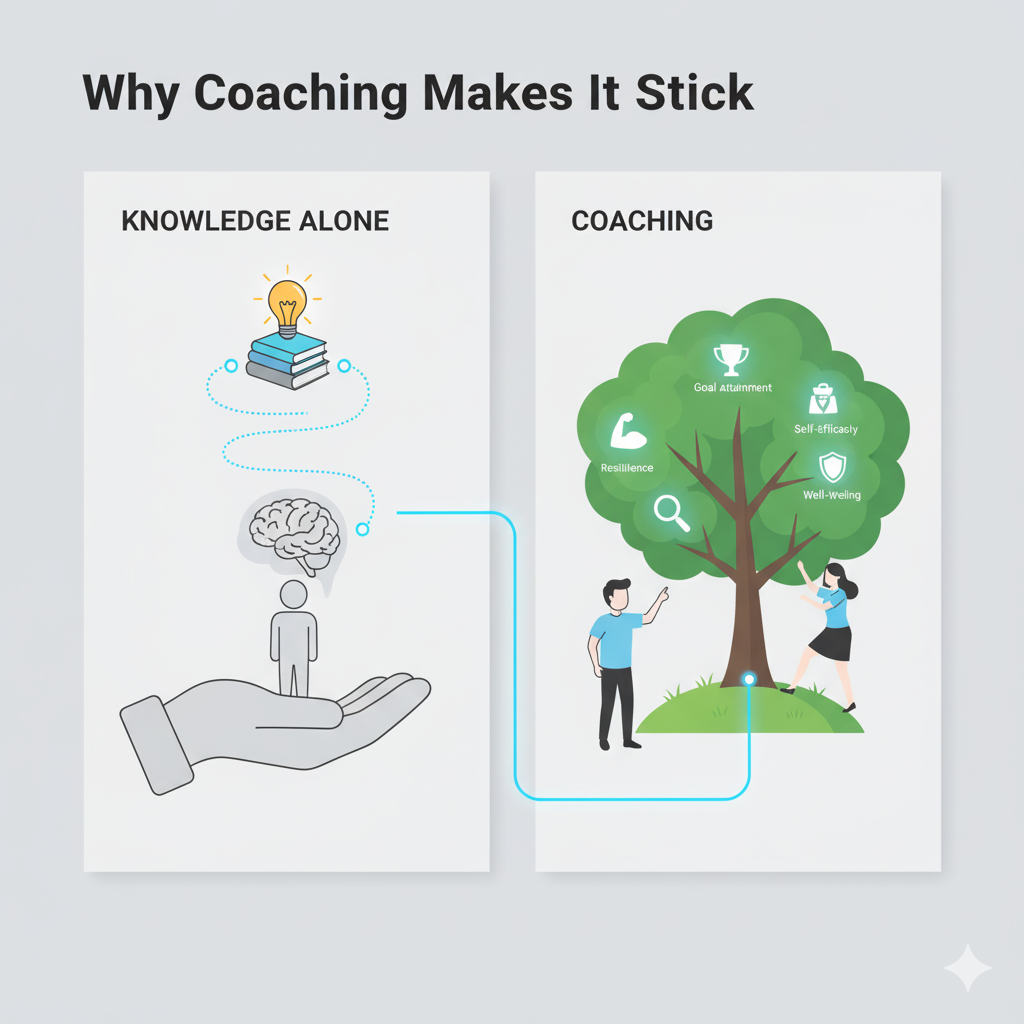
Why Coaching Makes It Stick
Knowledge alone doesn’t create transformation — integration does. That’s where coaching changes the game.
According to the International Coaching Federation (ICF), 80% of coaching participants report improved self-confidence, while 70% see measurable improvement in performance.
A systematic review in the International Journal of Evidence-Based Coaching and Mentoring found that coaching has a significant positive effect on goal attainment, resilience, and self-efficacy — far greater than training alone.
Further, a Frontiers in Psychology study demonstrated that coaching directly improves psychological well-being and stress regulation, showing sustained effects over time.
In simple terms:
- Coaching converts insight into action. It helps you apply what you’ve learned to real-life situations — at work, in relationships, or when setting personal goals.
- It provides accountability and reflection. You’re supported to test, adjust, and reinforce your learning.
- It shifts you from reacting to responding. You learn to pause, reflect, and choose intentionally — not impulsively.
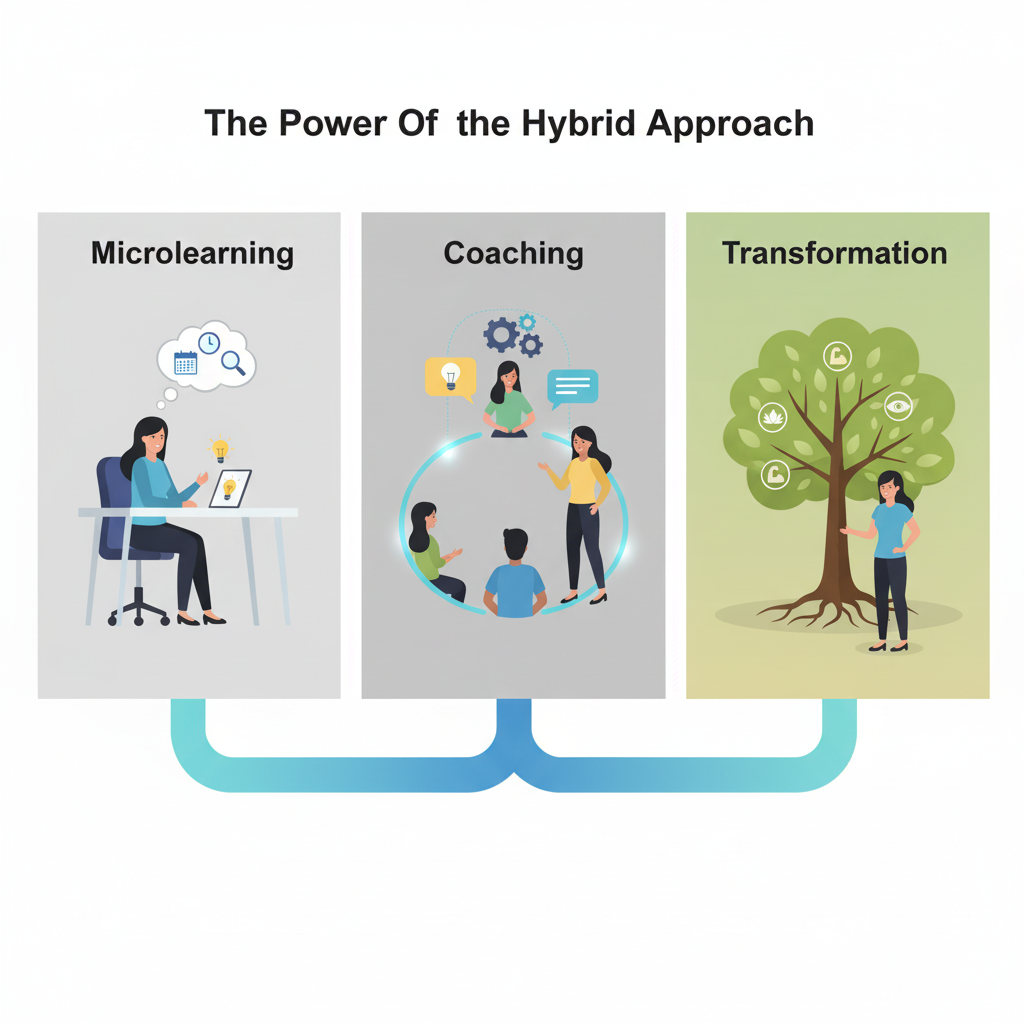
The Power Of The Hybrid Approach
When you blend microlearning and coaching, you combine autonomy with accountability — and that’s where sustainable transformation happens.
- You complete a 10-minute lesson on “Reframing Self-Doubt.”
- You apply a reflection exercise throughout the week, tracking when self-criticism appears and what triggers it.
- In your group coaching session, you unpack the experience, hear others’ perspectives, and receive guidance from a certified coach.
That’s not theory. That’s transformation — because it’s paced, personalized, and practiced.
This model is particularly effective for women who feel chronically stretched thin or overextended. By replacing “push harder” with “pause and process,” it helps rebuild the inner foundation of confidence, calm, and clarity — the cornerstones of resilience.

Why This Model Resonates So Deeply With Women
A 2024 Deloitte Women @ Work Report found that 53% of professional women reported higher stress levels than the previous year, with almost half experiencing burnout (Deloitte, 2024).
The World Health Organization attributes up to 69% of female burnout cases to emotional over-functioning — the chronic prioritization of others’ needs at the expense of one’s own.
Meanwhile, the KPMG Women’s Leadership Study reports that 75% of women experience persistent self-doubt, even after professional success (KPMG Women’s Leadership Study, 2020).
These numbers highlight what many already feel: women don’t need more ambition or advice — they need space, structure, and support for sustainable growth.
- Flexibility to learn at your own pace without disrupting responsibilities.
- Structure to keep progress intentional and consistent.
- Support through guided coaching that transforms insight into practice.

Real Benefits You Can Measure
When microlearning meets coaching, growth stops being another task — it becomes a way of living.
- Greater Self-Clarity: Focused lessons help identify mental or emotional patterns that keep you stuck. You learn to name them, understand them, and release them.
- Improved Emotional Regulation: Reflective exercises and coaching support teach you to respond thoughtfully instead of reacting impulsively — a key skill linked to resilience and emotional intelligence.
- Increased Accountability: Consistent coach check-ins raise goal achievement rates by up to 95%, according to the Association for Talent Development.
- Sustained Motivation: Group coaching fosters social learning; research in the MIT Sloan Management Review found peer accountability boosts engagement and learning retention by 50%.
- Confidence Through Competence: You move beyond self-affirmation and build evidence of your own capability — one decision, one boundary, one win at a time.
Redefining Growth As A Safe Space
True growth isn’t about adding more to your list — it’s about removing what no longer serves you.
Hybrid microlearning represents more than a learning method. It’s a philosophy: Growth should fit into your life, not the other way around.
Because when learning feels safe, structured, and supported, confidence stops being an act of willpower — it becomes a natural way of being.
Disclaimer: The views, thoughts, and opinions expressed in this article are solely those of the author and do not necessarily reflect, whether in whole or in part, the views of The Open Chest Confidence Academy, its owners, directors, management, employees, subcontractors, partners, affiliates, clients, or members.



